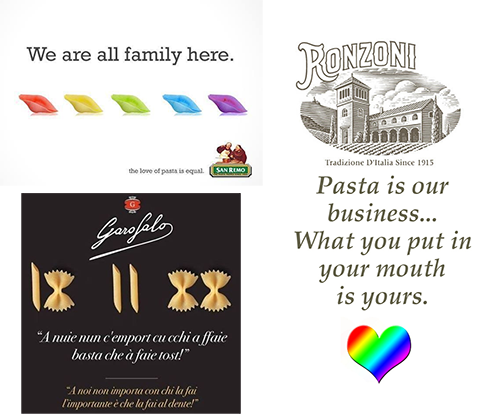Oct 21 2013
From Bad Publicity to Boycotts: Barilla’s Blunder
“I would never do an advert with a homosexual family. […] if the gays don’t like it, they can go and eat another brand,” declared Guido Barilla, CEO of the world’s largest pasta maker.
So, they did — and weren’t alone.
After the above statement was made on an Italian radio channel, there was a global outcry calling for a boycott of Barilla. Other pasta makers joined the protest as well, taking advantage of the incident being in the public eye to position themselves on the opposite side of the spectrum from Barilla.
“For us the concept of the sacred family remains one of the fundamental values of the company,” Barilla had said, followed by: “I have no respect for adoption by gay families.”
Is it more important for a company to stay true to its own values, offensive as they are in the eyes of many groups, or should they focus on gaining the approval of the general public? It’s an interesting question to consider when thinking about how a brand is trying to position itself. Although Barilla was targeting the ‘traditional Italian family,’ they completely alienated other groups in the process.
Barilla released a public apology afterward, but it was too late. Immense damage had been done to their brand, and the obvious contradiction in their statement became the new center of attention: “I apologize very much […] I have the deepest respect for all the people.”
Narrowing your focus is fine, but when disrespectful words that come across as a personal attack on certain groups come into play, Barilla should have realized they had crossed the line on their own — not after public backlash forced them to retract their statement.
Apparently, money and public approval had more value than “the fundamental values of the company.”
Related Links:
International Business Times: Barilla Pasta Homophobic Rant
Slate: Why the Barilla Boycott Matters to Italian LGBT People
BuzzFeed: The Internet Responds To Barilla Pasta Chairman’s Anti-Gay Remarks



